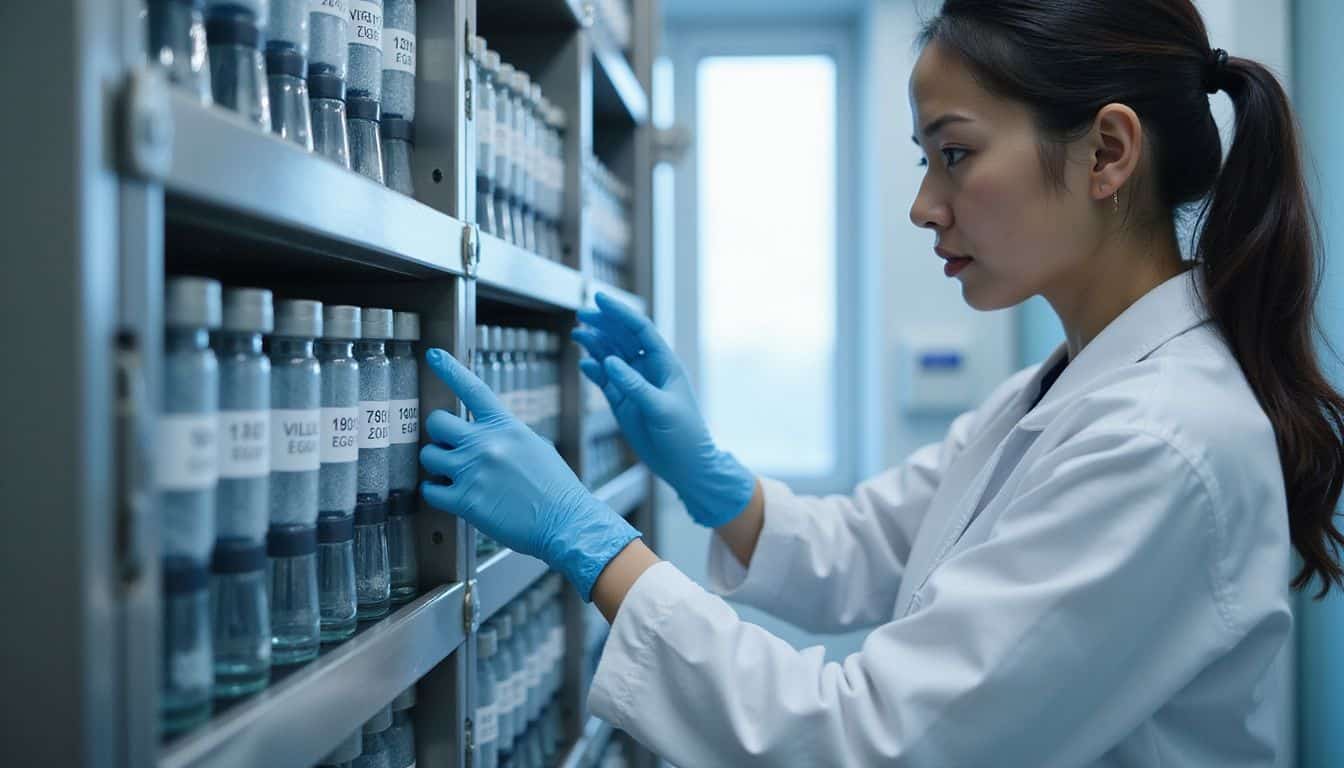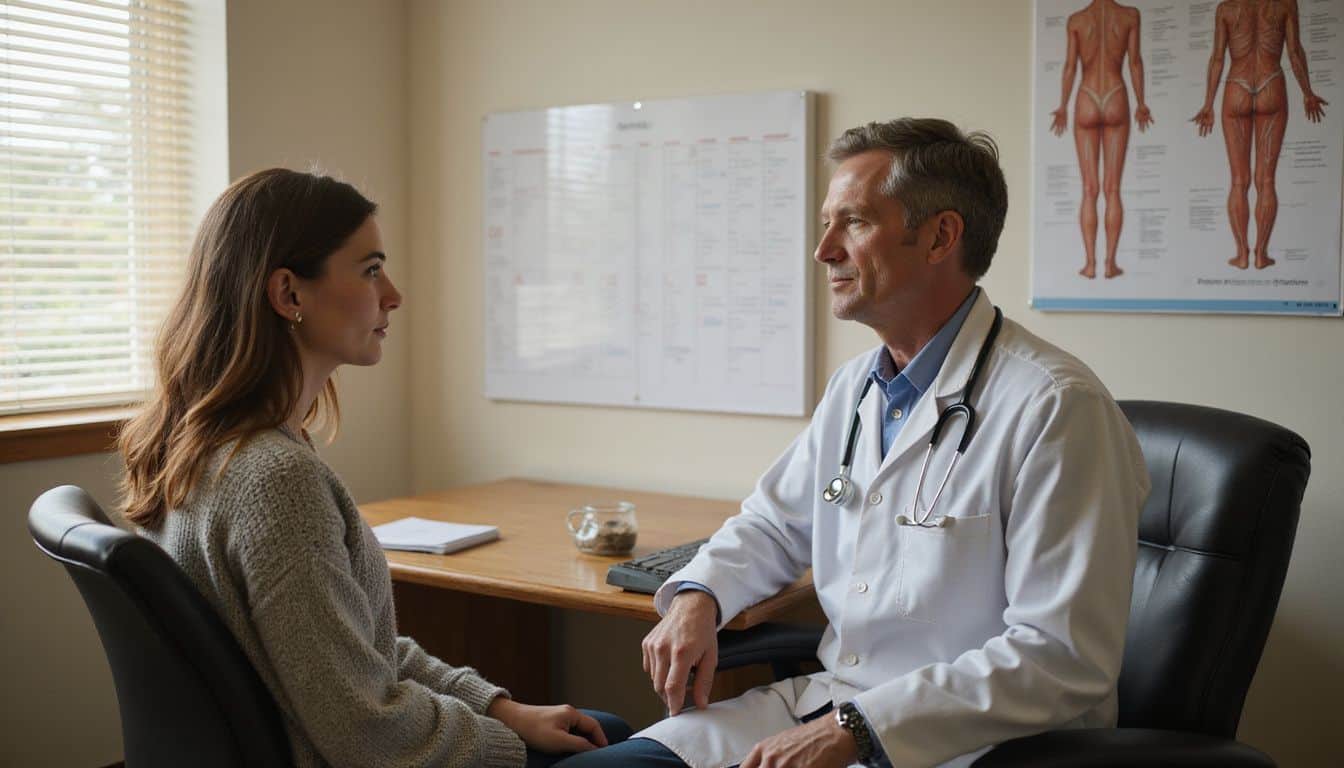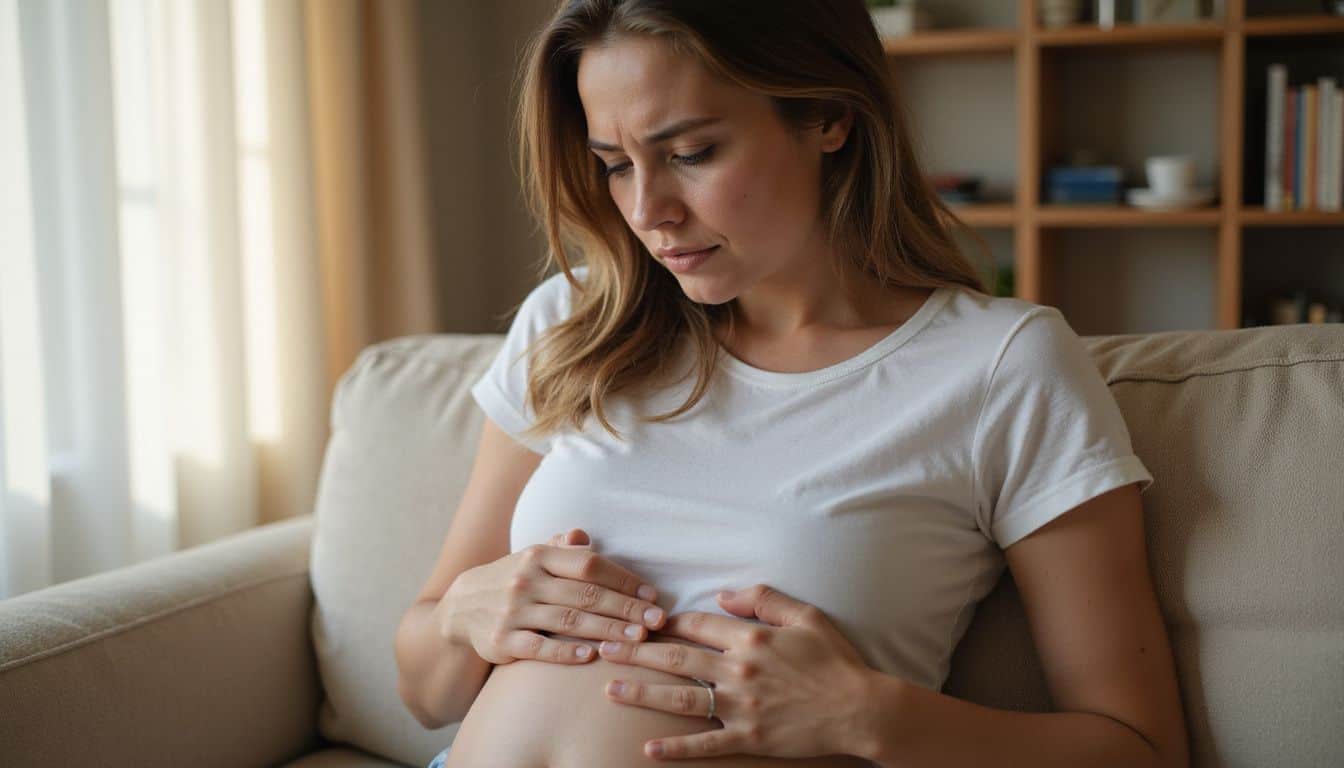Many women look for smart ways to earn extra cash and ease financial stress. One popular method, egg donation, offers starting payments of around $10,000 per cycle. This post provides eight clear facts about money for egg donation that can help boost your finances and answer key questions.
Keep reading to learn more useful details about this rewarding option.
Key Takeaways
First-time egg donors typically make around $10,000 per cycle—but this jumps to $15,000-$20,000 in cities like San Francisco.
Cities strongly influence donor pay: San Francisco donors get $15,000-$20,000, New York City donors around $12,000, and Chicago donors earn about $7,000-$9,000 per cycle.
Donor payments happen gradually: $75 comes right after the first screening, another $425 after Donor Day, and the remaining $6,500 once egg retrieval is done.
The IRS taxes egg donation income, though donors can write off expenses—like travel or meal costs.
Health rules restrict women to six egg donations ever, with mandatory breaks of at least two full menstrual cycles between each one.
Table of Contents
How Much Money Can You Make from Egg Donation?

Egg donors can make decent money by helping others build a family. For your first donation cycle, you’ll receive around $7,000. Come back for a second time, and it bumps up to $7,500.
After that, it’s $8,000 per cycle. But since December 2022, new donors now start at $10,000—nice increase, right?
Location changes your pay, too. San Francisco pays the most—anywhere from $15,000 to $20,000. New York City is solid too, around $12,000 per donation. Chicago ranges lower, from about $7,000 to $9,000.
The egg donation program adjusts payments based on your past cycle outcomes and personal characteristics.
Egg donation offers women a chance to change lives while earning substantial compensation for their time and effort.
Factors That Influence Egg Donor Compensation

Not all egg donors get paid the same amount. Your pay can change based on your health, where you live, and if you’ve donated before.
Previous donation success

Your past donation history affects your pay—a lot. Clinics reward donors who show they can produce healthy eggs. If you’re donating for the first time, expect about $5,000 to $7,000 per cycle.
But if your first cycle goes well and results in strong, healthy eggs, your second cycle pay often jumps up around $7,500. By the third cycle, rates can reach $8,000 and possibly higher.
“Success”, in this case, means your eggs were healthy, plentiful, and helped create viable embryos. Fertility clinics usually aim for donors who produce around 10 to 15 mature eggs each cycle.
Other factors like your hormone levels, egg quality, and how smoothly the parents’ IVF procedure went also directly shape your value as a repeat donor.
Personal characteristics

Aside from your donation history, physical features can seriously affect egg donor pay. Clinics often match donors and intended parents based on things like eye color and ethnic background.
Lots of families prefer donors who share similar traits—making certain features more valuable in donation markets.
Your unique traits are valuable assets in the world of egg donation.
College degrees or interesting careers matter as well. Intended parents typically choose donors who had strong grades or hold jobs that stand out. Fertility clinics see this interest clearly—and they’re often ready to pay more for donors who fit the bill.
Donors from uncommon ethnic groups or those with special skills can sometimes see even higher payments for their eggs.
Geographic location

Your location can seriously affect how much you make from donating eggs. Just your zip code alone might mean thousands more—or less—in your earnings. Big cities with high living costs typically pay donors better.
San Francisco leads the pack, offering about $15,000 to $20,000 per cycle. Clinics in New York City usually pay around $12,000, and in Chicago, you’ll see rates from $7,000 to $9,000.
Smaller cities and rural regions generally pay lower rates. These places don’t have as many clinics, and fewer families there need egg donors. Because of this, some donors even travel to bigger cities just to earn more.
The clinic’s location often matters more than your own home address—so it’s worth checking payment rates at different fertility centers in other areas.
Agency or clinic policies

Every fertility center has its own approach to egg donor pay. Top-rated clinics, with high success rates, can offer donors higher amounts—sometimes as much as $10,000 per donation cycle.
Most centers stick closely to ASRM guidelines, which suggest fair payments based on the donor’s time, effort, and any discomfort involved. Some places even pay more for unique donor traits, or for donors willing to do multiple cycles.
Before signing any agreement, clarify payment timelines, and find out their policies about canceled cycles. The clinic needs to cover all medical expenses tied to the egg donor requirements and entire donation procedure.
Always have those specifics clearly spelled out in your donor contract—just to stay safe.
Payment Timeline for Egg Donation

Most egg donation agencies pay donors after the egg retrieval is done. You’ll get your full payment in one lump sum, but tax rules can be tricky since the IRS may count this money as income.
When and how donors are paid

Egg donors earn payment in stages throughout the donation process. The clinic or agency pays you $75 once you complete your donor profile and clear the initial screening. After you attend Donor Day and meet with a counselor, you get another $425.
Then, the final—and largest—payment of $6,500 arrives once you’ve finished the egg retrieval procedure. This staggered approach helps you earn money as you go through each step.
Clinics generally pay through check or direct deposit to your account.
Receiving payment in stages helps make each step of egg donation feel meaningful and worthwhile.
Tax guidelines for egg donation income can be confusing. The IRS typically treats your donation payments as taxable. You might need to keep some of the payment aside for taxes. Fertility clinics don’t withhold taxes from your payments the way regular employers do.
Many donors find it helpful to speak with a tax professional to correctly report this income. The first-time donor amount of $7,000 can make a difference on your annual taxes.
Tax implications of egg donation compensation

Money earned from egg donation counts as taxable income. Yep—the IRS expects a share, since you’re earning money by helping others build a family. Most clinics send you a 1099 form if your payment tops $600, but even without the form, you need to report every dollar made.
A U.S. Tax Court ruling in 2015 backed this up clearly.
To lower your taxes, keep track of any costs linked to your egg donation. Save those receipts—for meals, gas, parking, and any out-of-pocket costs you face. These expenses can become handy tax deductions, cutting down the amount owed.
Lots of egg donors overlook these savings by forgetting to keep clear records. Don’t miss out—make it easy on yourself by jotting down expenses right when they happen.
Additional Financial Benefits for Egg Donors

Beyond the main payment, egg donors get extra money perks that add up fast. Clinics often cover all your travel costs, hotel stays, and meals during the donation process.
Coverage of medical and travel expenses

Egg donors don’t pay anything for medical expenses related to donation. Your clinic takes care of all medical visits, tests, fertility medications, and the egg retrieval surgery—saving you thousands in medical fees, while you earn money as a donor.
They even provide health insurance coverage, so no surprise bills pop up during the donation process.
Donors from outside the state get extra benefits. Your plane tickets, hotel rooms, and local transportation are fully covered. There’s also a daily food allowance—$75 for yourself or $125 if you have someone accompanying you.
These travel perks help make donation possible even if you live far away from fertility centers. Many donors say these covered expenses feel just as valuable as their actual payment, giving peace of mind so you can relax and focus on staying healthy during your cycle.
Other reimbursements

Donating eggs often means getting reimbursed for various expenses during the process. If you miss work, clinics typically provide $100 to $300 per day to cover lost wages. Parents who donate eggs usually receive between $100 and $200 per day to help with childcare costs.
Fertility clinics also commonly pay for parking fees, meals, and even hotel expenses if donors come from out of town. Some places give extra payments to donors who have unique genetic backgrounds or advanced degrees.
While your personal health insurance may not cover the entire donation procedure, clinics usually carry insurance to handle any medical issues that come up. It’s always smart to ask the clinic upfront about exactly which costs they cover before you begin.
How Often Can You Donate Eggs for Compensation?

Egg donors must follow strict guidelines about donation frequency. Medical standards set by the American Society for Reproductive Medicine (ASRM) limit donations to six times total, in a woman’s lifetime.
Your body needs rest between cycles—clinics usually ask you to wait through two full menstrual cycles before donating again. This waiting period lets your body recover and lowers risks like ovarian hyperstimulation syndrome.
The ASRM set the six-donation rule to protect women’s health. Multiple hormone treatments and egg retrieval procedures can affect your body over time. Fertility clinics track donation history carefully through medical records, making sure no one goes beyond this limit.
Risks and Considerations Related to Compensation

Money from egg donation comes with physical risks like OHSS, pain, and bloating. Your mental health might also be affected by hormones and the stress of the process.
Physical side effects

Egg donation causes real changes to your body. Most donors notice bloating, stomach discomfort, tender breasts, and mood shifts during the process. These mild symptoms occur due to hormone injections that prepare your ovaries.
The actual egg retrieval is quick—around 20 to 30 minutes—with IV sedation keeping you comfortable and asleep. Most bodies recover fully in about a week or so. Serious issues aren’t common, but roughly 1% of donors experience a condition called Ovarian Hyperstimulation Syndrome (OHSS).
OHSS can trigger intense swelling, nausea, and breathing trouble. After donating, I felt bloated for around five days, though Tylenol eased the discomfort pretty well.
Emotional and psychological factors

Before donating eggs, you’ll need to pass a mental health screening. That means chatting with a mental health professional on Donor Day and going through your family’s mental health history.
Some donors feel a bit nervous during this time—or even become emotionally connected to their eggs. The screening helps specialists understand your reasons for donating and checks your mental health background.
It’s a way to make sure you’re emotionally prepared for the process—because your emotional readiness is just as important as physical health. Next up, let’s see how donor compensation could shift over the next few years.
How Will Egg Donation Compensation Change in 2025?

Egg donation payments are set to climb—likely reaching between $15,000 and $20,000 per cycle by 2025. Why the increase? Rising demand for fertility care, plus fewer women choosing to donate.
Clinics now sweeten the deal, offering perks like paid recovery days and full medical coverage. And some programs even throw in health insurance lasting six months after donation.
Tax rules around egg donation income could shift soon. The IRS might clear up whether these payments count as taxable earnings or medical reimbursement. Payment methods may expand too, with options such as installment plans or scholarship funds for student donors.
Differences in pay will widen by area—major cities will pay as much as $25,000 while smaller places stick closer to around $8,000 per donation.
People Also Ask
How much money can I make from egg donation?
You can usually earn around $5,000 to $10,000 per donation cycle. Some clinics offer higher payments if you have certain traits or specific education. Sometimes, compensation includes covering your medical bills or paid leave.
What makes someone eligible for egg donation?
Clinics look for donors aged between 21 and 32, generally healthy, with no family history of genetic conditions. They’ll give you a physical exam, a pelvic check, and a mental health screening. Doctors may also test your ovarian reserve and anti-mullerian hormone levels.
Does egg donation affect my future fertility?
Egg donation usually won’t affect your ability to have kids later or your fertility level. The donation uses eggs your body would naturally release anyway each month. Still, there can sometimes be rare side effects like infection, bleeding, or ovarian hyperstimulation syndrome (OHSS).
Can I donate eggs while on birth control?
You’ll be asked to come off hormonal birth control like pills, Nexplanon, Implanon, Mirena, or Norplant before donating eggs. Doctors need to track your natural hormone patterns closely. Using condoms during the process is usually allowed.
Are there lifestyle restrictions during egg donation?
Yes—you’ll need to stop drinking alcohol and using recreational drugs or other substances. Some clinics also recommend avoiding ibuprofen and Mucinex. Sex isn’t allowed right around egg retrieval time. Clinics will likely check you for STIs and mental health conditions, like anxiety.
What happens during the egg donation process?
The donation process lasts about 3 to 4 weeks. You’ll start by injecting hormones under your skin to make your body produce extra eggs. Doctors monitor your progress with a few sonogram appointments. When your eggs are ready, retrieval is done using anesthesia and takes around 30 minutes. Afterward, mild tiredness and mood swings are common.
References
https://www.fairfaxeggbank.com/blog/a-guide-to-egg-donor-compensation/ (2025-01-20)
https://www.hatch.us/en/blog/how-much-money-do-egg-donors-make (2020-12-29)
https://pubmed.ncbi.nlm.nih.gov/17623528/
https://www.rmami.com/how-much-money-can-you-earn-as-an-egg-donor/ (2025-02-15)
https://www.conceiveabilities.com/egg-donors/egg-donor-pay/
https://ivfminnesota.com/egg-donor-faqs/
https://www.tsonglaw.com/post/is-egg-donor-compensation-taxable-1 (2023-04-13)
https://www.tlcdonorservices.com/egg-donor-compensation-and-taxes/
https://www.eggdonoramerica.com/blog/egg-donor-compensation-understanding-the-financial-aspects
https://www.growinggenerations.com/egg-donation/for-egg-donors/pay-compensation
https://www.inviafertility.com/blog/how-many-times-can-you-donate-eggs
https://www.simplifyeggbank.com/blog/what-are-egg-donation-side-effects
